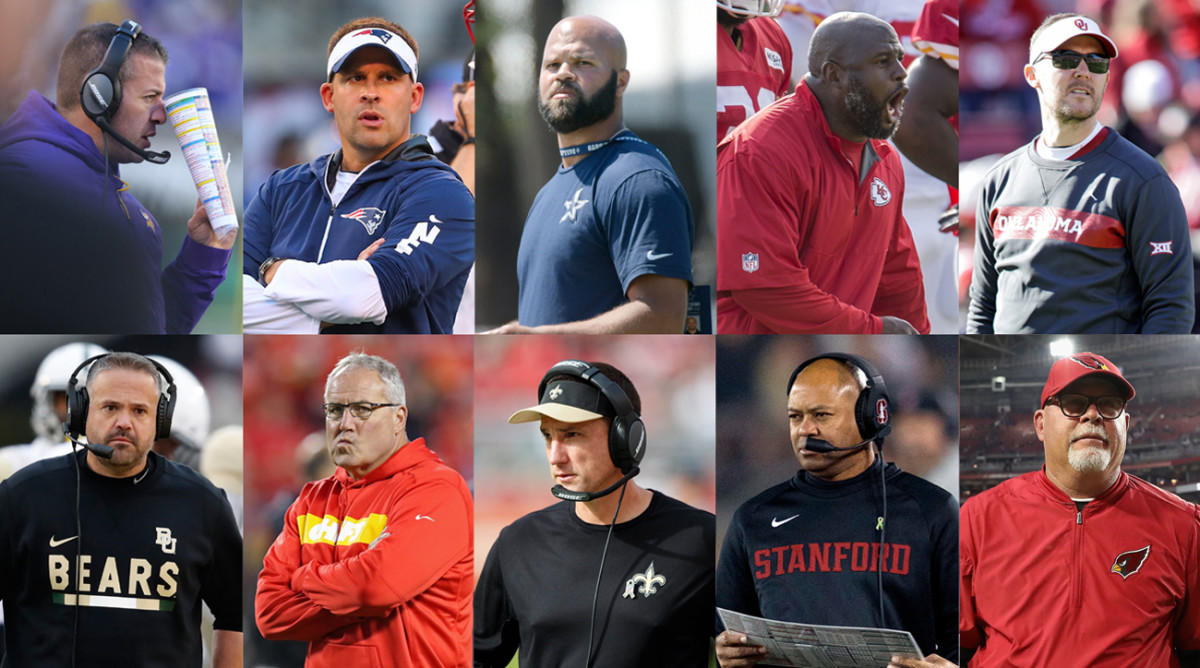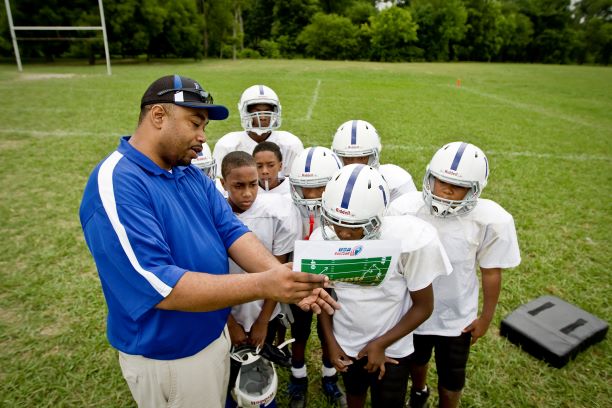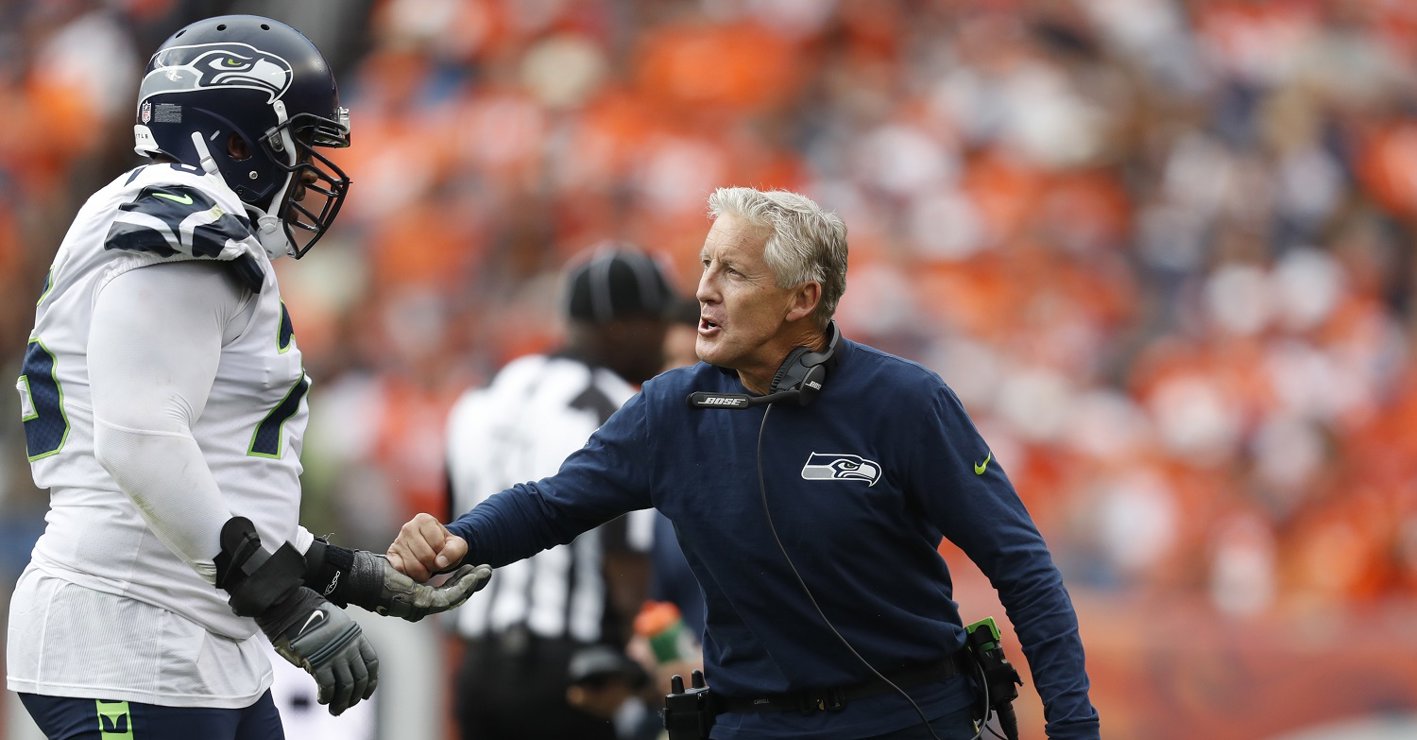Introduction

The National Football League (NFL) is the premier professional football league in the United States, renowned for its competitive spirit and strategic depth. Coaches in the NFL play a crucial role in the success of their teams. They are responsible for developing game plans, training athletes, and making critical in-game decisions. Effective coaching can mean the difference between victory and defeat, influencing everything from player performance to team morale.
By examining the strategies and methods used by successful coaches, we can gain insights into what makes a winning team. This includes understanding the fundamental principles of coaching, player development, in-game management, and the integration of technology and innovation.
Historical Background

Early Days of NFL Coaching
In the early days of the NFL, coaching was relatively straightforward, focusing primarily on basic tactics and player motivation. Coaches often doubled as team managers and were heavily involved in all aspects of the team’s operations. The primary emphasis was on fundamental skills and conditioning, with less emphasis on intricate strategies and playbooks. This period laid the foundation for the professionalization of coaching in football.
Evolution of Coaching Strategies
As the NFL grew in popularity and complexity, coaching strategies began to evolve. Coaches started to incorporate more sophisticated offensive and defensive schemes, utilizing film study and statistical analysis to gain an edge over opponents. The development of specialized roles, such as offensive and defensive coordinators, further refined team strategies. The introduction of new rules and advancements in technology also played a significant role in shaping modern coaching techniques.
Influential Coaches and Their Contributions
Several coaches have left an indelible mark on the NFL through their innovative approaches and leadership. Vince Lombardi, known for his motivational skills and disciplined approach, revolutionized the way teams prepared for games. Bill Walsh introduced the West Coast offense, which emphasized short, precise passes and changed offensive playbooks forever. Bill Belichick‘s mastery of defensive schemes and adaptability has made him one of the most successful coaches in NFL history. These coaches and others have set new standards and continue to inspire future generations.
Fundamental Coaching Techniques
Developing a Playbook

Creating a comprehensive playbook is a cornerstone of NFL coaching. It encompasses offensive, defensive, and special teams strategies, tailored to maximize a team’s strengths and exploit opponents’ weaknesses. For more details on developing a playbook, visit Football Playbook Builder.
Offensive Strategies
Offensive strategies focus on moving the ball down the field and scoring points. Coaches design plays that utilize the unique skills of their players, incorporating various formations and motions to confuse defenses. The development of the West Coast offense, read-option, and spread offense are examples of how offensive strategies have evolved over time. Learn more about offensive strategies at Offensive Playbooks.
Defensive Strategies
Defensive strategies aim to prevent the opposing team from scoring by stopping their offensive plays. Coaches develop schemes such as zone coverage, man-to-man coverage, and blitz packages to counter different offensive tactics. Adjustments are often made in real-time based on the offensive formation and the down-and-distance situation. Explore defensive strategies at Defensive Football Plays.
Special Teams Strategies
Special teams play a critical role in field position and scoring opportunities. Coaches create strategies for kickoffs, punts, field goals, and punt returns. Emphasizing precision and timing, special teams units can often be the difference between winning and losing close games. For comprehensive special teams strategies, visit Special Teams Playbooks.
Game Planning
Scouting Opponents
Scouting is essential for understanding the strengths and weaknesses of upcoming opponents. Coaches and scouts analyze game footage, player statistics, and tendencies to prepare for each matchup. This preparation helps in formulating a game plan tailored to exploit the opponent’s vulnerabilities. Check out more about scouting techniques at Football Scouting Tools.
Adjusting Strategies for Different Teams
Each opponent presents a unique challenge, requiring tailored strategies. Coaches must adjust their game plans weekly, considering factors like opponent personnel, injury reports, and weather conditions. This adaptability is crucial for maintaining a competitive edge throughout the season.
Utilizing Analytics and Technology
The use of analytics and technology has revolutionized game planning in the NFL. Data analysis tools help coaches make informed decisions on play calling, player matchups, and game-time adjustments. Technology such as virtual reality is also used to simulate game scenarios and improve player preparedness.
Player Development

Physical Training
Strength and Conditioning Programs are essential for player development. These programs focus on building the physical foundation necessary for peak performance. Implementing comprehensive strength and conditioning regimens helps players improve their power, speed, and overall athleticism, ensuring they are prepared for the demands of the game. Discover more about physical training at Football Strength Training.
Injury Prevention and Recovery
Injury prevention and recovery are crucial components of physical training. The NFL Way to Play emphasizes techniques and practices that minimize injury risks, allowing players to maintain their health throughout the season. Teaching proper techniques and providing recovery protocols help young athletes bounce back from injuries and continue their development.
Skill Development
Position-Specific Training hones the unique skills required for each role on the field. Focused training helps players excel in their positions. Providing tailored training sessions ensures that each player gains the knowledge and skills necessary to succeed.
Drills and Practice Routines
Effective drills and practice routines are vital for skill enhancement. Coaches design practice sessions that simulate game scenarios, helping players refine their techniques and improve their decision-making abilities. Consistent practice and repetition of key drills are essential for player growth and performance. Learn more about drills and practice routines at this source.
Mental Preparation
Film Study and Playbook Comprehension
Understanding the mental aspects of the game is critical for success. Film study allows players to analyze their performance and learn from their mistakes. Comprehending the playbook ensures players know their assignments and can execute plays correctly. Coaches emphasize the importance of mental preparation, providing players with the knowledge they need to make smart decisions on the field. Explore more on film study and playbook comprehension at Football Film Study.
Mental Toughness and Focus Techniques
Mental toughness and focus are crucial for thriving in high-pressure situations. Coaches work with players to develop techniques that enhance concentration and resilience. Fostering mental toughness helps players stay composed and perform at their best, regardless of the challenges they face.
In-Game Management

Play Calling
Offensive Play Calling Strategies are crucial for advancing the ball and scoring points. Coaches must understand the strengths and weaknesses of their own team as well as their opponent’s defense. Play calling strategies can include a mix of run and pass plays, utilizing formations and motions to create mismatches and exploit defensive weaknesses.
Defensive Play Calling Strategies
Defensive play calling aims to stop the opposing offense and create opportunities for turnovers. Coaches must analyze the opponent’s tendencies and adjust their defensive schemes accordingly. Strategies may include man-to-man coverage, zone defense, and various blitz packages designed to pressure the quarterback and disrupt the offense.
Special Teams Decisions
Special teams play a critical role in field position and scoring opportunities. Decisions regarding kickoffs, punts, field goals, and punt returns can significantly impact the outcome of a game. Coaches must evaluate the game situation and make strategic calls that optimize their team’s chances of success.
Clock Management
Managing timeouts effectively is essential for controlling the pace of the game and preserving time for critical situations. Coaches must know when to use timeouts to stop the clock, regroup the team, or challenge a play. Proper timeout management can prevent costly mistakes and provide opportunities for scoring drives or defensive stops, especially in close games.
Two-Minute Drill Strategies
The two-minute drill is a high-pressure situation that requires efficient execution and quick decision-making. Coaches prepare their teams for these scenarios by practicing plays designed to move the ball quickly down the field while conserving time. Successful two-minute drills rely on precise communication and the ability to adapt to the defense’s strategy.
End-of-Game Situations
End-of-game situations often determine the outcome of a closely contested match. Coaches must be adept at managing the clock, making strategic play calls, and guiding their team through high-stress moments. Decisions such as when to go for it on fourth down, kick a field goal, or attempt a two-point conversion can have significant consequences.
Leadership and Team Dynamics
Building Team Culture
Building a strong team culture begins with establishing core values and principles that guide the team’s behavior and decisions. These values might include hard work, integrity, accountability, and teamwork. Clearly communicating these principles and leading by example helps instill a sense of purpose and direction within the team.
Fostering Team Unity and Chemistry
Team unity and chemistry are critical for achieving peak performance. Coaches can foster these qualities by organizing team-building activities, encouraging open communication, and creating an inclusive environment where every player feels valued. Developing strong relationships among players and between players and coaches builds trust and camaraderie.
Motivational Techniques
Pre-game speeches and pep talks are powerful tools for motivating players and setting the tone for the game. A coach’s ability to inspire confidence, focus, and determination can significantly impact the team’s performance.
Handling Wins and Losses
How a team handles wins and losses reflects its character and resilience. Coaches play a crucial role in maintaining perspective and balance. After a win, it’s important to celebrate success while staying focused on future challenges. Following a loss, a coach should emphasize learning from mistakes, maintaining confidence, and preparing for the next opportunity.
Conflict Resolution
Managing player egos and resolving disputes is a vital aspect of team leadership. Conflicts can arise from competition for playing time, differences in personality, or misunderstandings. Coaches must address these issues promptly and fairly, promoting a culture of respect and cooperation.
Communicating Effectively with Staff and Players
Effective communication is the cornerstone of successful leadership. Coaches must ensure clear and consistent communication with both staff and players. This involves providing constructive feedback, setting expectations, and actively listening to concerns and suggestions.
Technology and Innovation in Coaching
Use of Analytics
Analytics have revolutionized coaching by providing coaches with valuable insights through data-driven decision making. Coaches analyze statistics such as player performance metrics, opponent tendencies, and situational probabilities to make informed choices on strategy, play calling, and player utilization.
Statistical Analysis of Player Performance
Statistical analysis plays a crucial role in evaluating player performance and identifying areas for improvement. Coaches use advanced metrics and performance analytics to assess player contributions, effectiveness in specific situations, and overall impact on the game.
Video Analysis
Video analysis enables coaches to dissect game footage in detail, identifying strengths, weaknesses, and tactical opportunities. Coaches and players review game film to study opponent strategies, analyze individual and team performances, and refine game plans.
Use of Video for Teaching and Corrections
Video serves as a powerful teaching tool for coaches to illustrate concepts, demonstrate techniques, and provide feedback to players. By visually reinforcing coaching points and correcting errors, video sessions enhance learning and skill development.
Emerging Technologies
Virtual reality (VR) and simulations offer innovative training methods that simulate game scenarios and enhance player preparation. Coaches can create virtual environments where players can practice decision-making, react to dynamic situations, and refine their skills in a controlled setting.
Wearable Technology and Biometrics
Wearable technology and biometrics provide real-time insights into player health, fitness levels, and physical performance metrics. Devices such as GPS trackers, heart rate monitors, and accelerometers collect data during practices and games, allowing coaches to monitor workload, assess fatigue levels, and optimize training regimens.